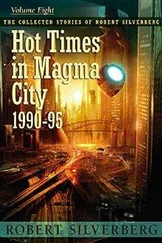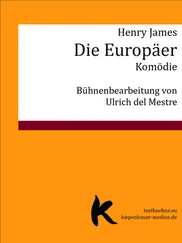Henry James - Roderick Hudson
Здесь есть возможность читать онлайн «Henry James - Roderick Hudson» — ознакомительный отрывок электронной книги совершенно бесплатно, а после прочтения отрывка купить полную версию. В некоторых случаях можно слушать аудио, скачать через торрент в формате fb2 и присутствует краткое содержание. Жанр: unrecognised, на английском языке. Описание произведения, (предисловие) а так же отзывы посетителей доступны на портале библиотеки ЛибКат.
- Название:Roderick Hudson
- Автор:
- Жанр:
- Год:неизвестен
- ISBN:нет данных
- Рейтинг книги:3 / 5. Голосов: 1
-
Избранное:Добавить в избранное
- Отзывы:
-
Ваша оценка:
- 60
- 1
- 2
- 3
- 4
- 5
Roderick Hudson: краткое содержание, описание и аннотация
Предлагаем к чтению аннотацию, описание, краткое содержание или предисловие (зависит от того, что написал сам автор книги «Roderick Hudson»). Если вы не нашли необходимую информацию о книге — напишите в комментариях, мы постараемся отыскать её.
Roderick Hudson — читать онлайн ознакомительный отрывок
Ниже представлен текст книги, разбитый по страницам. Система сохранения места последней прочитанной страницы, позволяет с удобством читать онлайн бесплатно книгу «Roderick Hudson», без необходимости каждый раз заново искать на чём Вы остановились. Поставьте закладку, и сможете в любой момент перейти на страницу, на которой закончили чтение.
Интервал:
Закладка:
Henry James
Roderick Hudson
PUBLISHER NOTES:
Quality of Life, Freedom, More time with the ones you Love.
Visit our website: LYFREEDOM.COM
Chapter
1
Rowland
Mallet had made his arrangements to sail for Europe on the first of September, and having in the interval a fortnight to spare, he determined to spend it with his cousin Cecilia, the widow of a nephew of his father. He was urged by the reflection that an affectionate farewell might help to exonerate him from the charge of neglect frequently preferred by this lady. It was not that the young man disliked her; on the contrary, he regarded her with a tender admiration, and he had not forgotten how, when his cousin had brought her home on her marriage, he had seemed to feel the upward sweep of the empty bough from which the golden fruit had been plucked, and had then and there accepted the prospect of bachelorhood. The truth was, that, as it will be part of the entertainment of this narrative to exhibit, Rowland Mallet had an uncomfortably sensitive conscience, and that, in spite of the seeming paradox, his visits to Cecilia were rare because she and her misfortunes were often uppermost in it. Her misfortunes were three in number: first, she had lost her husband; second, she had lost her money (or the greater part of it); and third, she lived at Northampton, Massachusetts. Mallet's compassion was really wasted, because Cecilia was a very clever woman, and a most skillful counter-plotter to adversity. She had made herself a charming home, her economies were not obtrusive, and there was always a cheerful flutter in the folds of her crape. It was the consciousness of all this that puzzled Mallet whenever he felt tempted to put in his oar. He had money and he had time, but he never could decide just how to place these gifts gracefully at Cecilia's service. He no longer felt like marrying her: in these eight years that fancy had died a natural death. And yet her extreme cleverness seemed somehow to make charity difficult and patronage impossible. He would rather chop off his hand than offer her a check, a piece of useful furniture, or a black silk dress; and yet there was some sadness in seeing such a bright, proud woman living in such a small, dull way. Cecilia had, moreover, a turn for sarcasm, and her smile, which was her pretty feature, was never so pretty as when her sprightly phrase had a lurking scratch in it. Rowland remembered that, for him, she was all smiles, and suspected, awkwardly, that he ministered not a little to her sense of the irony of things. And in truth, with his means, his leisure, and his opportunities, what had he done? He had an unaffected suspicion of his uselessness. Cecilia, meanwhile, cut out her own dresses, and was personally giving her little girl the education of a princess.
This time, however, he presented himself bravely enough; for in the way of activity it was something definite, at least, to be going to Europe and to be meaning to spend the winter in Rome. Cecilia met him in the early dusk at the gate of her little garden, amid a studied combination of floral perfumes. A rosy widow of twenty-eight, half cousin, half hostess, doing the honors of an odorous cottage on a midsummer evening, was a phenomenon to which the young man's imagination was able to do ample justice. Cecilia was always gracious, but this evening she was almost joyous. She was in a happy mood, and Mallet imagined there was a private reason for it—a reason quite distinct from her pleasure in receiving her honored kinsman. The next day he flattered himself he was on the way to discover it.
For the present, after tea, as they sat on the rose-framed porch, while Rowland held his younger cousin between his knees, and she, enjoying her situation, listened timorously for the stroke of bedtime, Cecilia insisted on talking more about her visitor than about herself.
"What is it you mean to do in Europe?" she asked, lightly, giving a turn to the frill of her sleeve—just such a turn as seemed to Mallet to bring out all the latent difficulties of the question.
"Why, very much what I do here," he answered. "No great harm."
"Is it true," Cecilia asked, "that here you do no great harm? Is not a man like you doing harm when he is not doing positive good?"
"Your compliment is ambiguous," said Rowland.
"No," answered the widow, "you know what I think of you. You have a particular aptitude for beneficence. You have it in the first place in your character. You are a benevolent person. Ask Bessie if you don't hold her more gently and comfortably than any of her other admirers."
"He holds me more comfortably than Mr. Hudson," Bessie declared, roundly.
Rowland, not knowing Mr. Hudson, could but half appreciate the eulogy, and Cecilia went on to develop her idea. "Your circumstances, in the second place, suggest the idea of social usefulness. You are intelligent, you are well-informed, and your charity, if one may call it charity, would be discriminating. You are rich and unoccupied, so that it might be abundant. Therefore, I say, you are a person to do something on a large scale. Bestir yourself, dear Rowland, or we may be taught to think that virtue herself is setting a bad example."
"Heaven forbid," cried Rowland, "that I should set the examples of virtue! I am quite willing to follow them, however, and if I don't do something on the grand scale, it is that my genius is altogether imitative, and that I have not recently encountered any very striking models of grandeur. Pray, what shall I do? Found an orphan asylum, or build a dormitory for Harvard College? I am not rich enough to do either in an ideally handsome way, and I confess that, yet awhile, I feel too young to strike my grand coup. I am holding myself ready for inspiration. I am waiting till something takes my fancy irresistibly. If inspiration comes at forty, it will be a hundred pities to have tied up my money-bag at thirty."
"Well, I give you till forty," said Cecilia. "It 's only a word to the wise, a notification that you are expected not to run your course without having done something handsome for your fellow-men."
Nine o'clock sounded, and Bessie, with each stroke, courted a closer embrace. But a single winged word from her mother overleaped her successive intrenchments. She turned and kissed her cousin, and deposited an irrepressible tear on his moustache. Then she went and said her prayers to her mother: it was evident she was being admirably brought up. Rowland, with the permission of his hostess, lighted a cigar and puffed it awhile in silence. Cecilia's interest in his career seemed very agreeable. That Mallet was without vanity I by no means intend to affirm; but there had been times when, seeing him accept, hardly less deferentially, advice even more peremptory than the widow's, you might have asked yourself what had become of his vanity. Now, in the sweet-smelling starlight, he felt gently wooed to egotism. There was a project connected with his going abroad which it was on his tongue's end to communicate. It had no relation to hospitals or dormitories, and yet it would have sounded very generous. But it was not because it would have sounded generous that poor Mallet at last puffed it away in the fumes of his cigar. Useful though it might be, it expressed most imperfectly the young man's own personal conception of usefulness. He was extremely fond of all the arts, and he had an almost passionate enjoyment of pictures. He had seen many, and he judged them sagaciously. It had occurred to him some time before that it would be the work of a good citizen to go abroad and with all expedition and secrecy purchase certain valuable specimens of the Dutch and Italian schools as to which he had received private proposals, and then present his treasures out of hand to an American city, not unknown to aesthetic fame, in which at that time there prevailed a good deal of fruitless aspiration toward an art-museum.
Читать дальшеИнтервал:
Закладка:
Похожие книги на «Roderick Hudson»
Представляем Вашему вниманию похожие книги на «Roderick Hudson» списком для выбора. Мы отобрали схожую по названию и смыслу литературу в надежде предоставить читателям больше вариантов отыскать новые, интересные, ещё непрочитанные произведения.
Обсуждение, отзывы о книге «Roderick Hudson» и просто собственные мнения читателей. Оставьте ваши комментарии, напишите, что Вы думаете о произведении, его смысле или главных героях. Укажите что конкретно понравилось, а что нет, и почему Вы так считаете.












